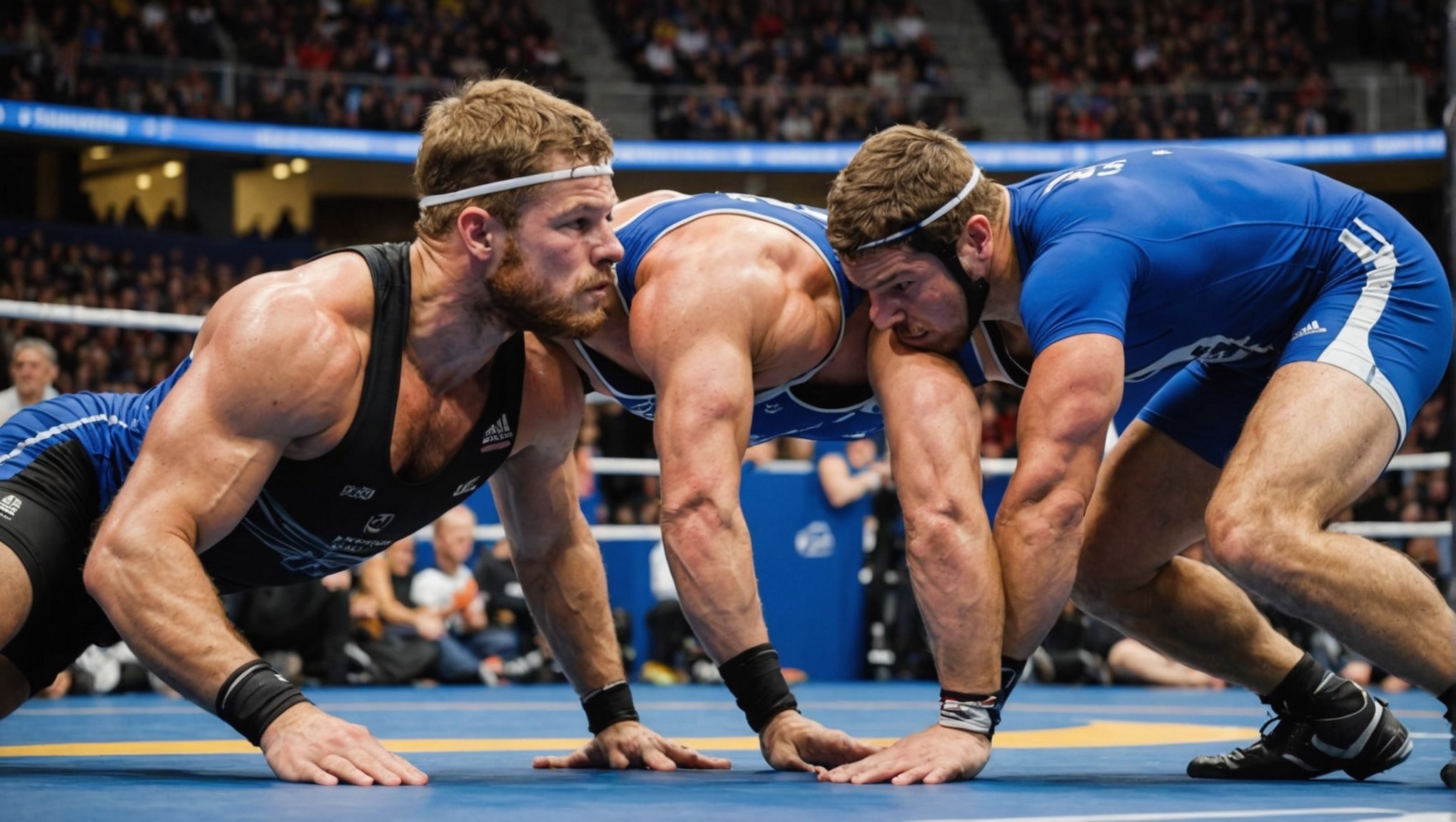Essential Nutritional Strategies for Wrestlers
Wrestlers in the UK face unique nutritional demands, especially during competition. Essential Nutrition Strategies are crucial for maintaining peak athletic performance. These strategies ensure wrestlers get the most out of their training and matches.
Macronutrients and Micronutrients
Macronutrients like carbohydrates, proteins, and fats are vital. Carbohydrates are the primary energy source, helping to sustain performance throughout matches. Proteins aid in muscle repair and growth, essential after intense training sessions. Fats, though often overlooked, provide long-lasting energy and aid in hormone production.
Also read : Key Elements of an Effective Sports Psychology Program for Boxers in the UK
Micronutrients, including vitamins and minerals, are equally important. They support energy metabolism and immunity, keeping wrestlers healthy and ready to perform. For instance, iron is crucial for oxygen transport, and magnesium aids muscle function.
Optimizing Energy and Recovery
Adopting the right dietary patterns is critical. Wrestlers should focus on:
Also read : Top UK Combat Sports Academies: Find the Best Beginner-Friendly Programs
- Balanced Meals: Include a mix of macronutrients and micronutrients in every meal.
- Snack Wisely: Prioritise nutrient-rich snacks that offer quick energy without weighing you down.
- Hydration: Essential for maintaining stamina and preventing cramps.
Adhering to these Essential Nutrition Strategies ensures that UK wrestlers maintain high athletic performance, optimize their energy levels, and enhance recovery.
Meal Planning for Peak Performance
Creating a meal plan tailored for wrestlers is essential for maximising performance nutrition during the rigorous competition season. The key components of such a plan should encompass balanced macronutrients and proper hydration. Wrestlers require a mix of proteins, carbohydrates, and fats to support muscle growth and recovery, energy for training sessions, and long-lasting satiety.
Strategies for daily meal structuring involve planning meals and snacks around training times. Incorporating frequent small meals can prevent energy crashes and facilitate better nutrient absorption. A typical day might start with a carbohydrate-rich breakfast, such as porridge, providing steady energy. A mid-morning snack should include protein to sustain muscle repair, like Greek yogurt or cheese.
Lunch could be a balanced meal with lean protein, complex carbs, and healthy fats. Incorporate meals with locally sourced UK foods like fish or lean meats, potatoes, and leafy greens, which can provide essential vitamins and minerals. Post-training meals and snacks should focus on replenishing glycogen stores; for example, a fruit smoothie with whey protein.
By structuring daily meals with consideration of nutritional balance and timing, wrestlers can maintain optimal energy levels and recovery during the competition season. This holistic approach to meal planning ensures sustained performance and supports athletic goals.
Hydration Strategies for Wrestlers
For UK wrestlers, optimal performance hinges significantly on proper hydration. It’s one of the most critical aspects of performance optimization. Inadequate fluid intake can lead to decreased stamina, impaired focus, and a higher risk of injury. Wrestling, with its physically demanding nature, requires maintaining hydration to function at peak levels.
The recommended fluid intake should be personalized, accounting for each wrestler’s physiologic needs and training intensity. A general guideline is consuming approximately 500ml of water two hours before training or a match and sipping 150-200ml every 15-20 minutes during activity. Post-exercise, replenishing fluids lost through sweat is essential, aiming to replace about 125-150% of fluid lost to ensure effective recovery.
Assessing hydration status can be straightforward with a few strategies. Monitoring urine colour and volume offers a quick gauge—pale yellow indicates adequate hydration, while dark urine suggests dehydration. Tracking weight pre and post-training gives insight into individual fluid loss, guiding personalized hydration plans.
Supplements like electrolytes can play a role in maintaining hydration, especially if athletes sweat excessively. They help in replenishing sodium and potassium lost, vital for muscle function. For performance optimization, incorporating fruits or sports drinks with electrolytes can enhance endurance and recovery, tailoring to the specific needs of UK wrestlers.
Pre-Competition Nutrition Guidelines
Fueling for Performance is crucial, especially for UK wrestlers aiming to maintain peak energy levels during competition. Focusing on pre-competition nutrition can make the difference in energy and endurance on the mat.
Before entering the competition, emphasize consuming carbohydrate-rich meals. Foods such as whole grains, oats, or pasta provide sustained energy and help avoid fatigue. Proteins like chicken or legumes, combined with healthy fats from sources like avocados, can further enhance stamina.
Timing is another critical factor. The primary meal should ideally be consumed about 3-4 hours before the event. This window allows sufficient time for digestion, ensuring the body is adequately fueled without feeling sluggish or bloated. A small, easily digestible snack, such as a banana or an energy bar, can be consumed 30-60 minutes before as a last-minute energy boost.
The role of supplements in pre-competition nutrition should not be overlooked, though it’s essential to approach them carefully. Supplements like electrolytes can prevent dehydration, while those high in B vitamins may enhance energy metabolism. However, it’s crucial for UK wrestlers to consult with a nutritionist to ensure these supplements are optimal for their needs and health. By carefully planning nutrition, maximum performance is achievable.
Post-Competition Recovery Nutrition
After the rigours of competition, recovery nutrition becomes critical in aiding muscle repair and replenishing energy stores. Ensuring that your body receives essential nutrients post-competition is vital for optimal recovery and future performance. Proteins and carbohydrates play a substantial role in this process. The proteins help with muscle repair, while carbohydrates are essential for restoring glycogen stores depleted during intense activity.
The timing and composition of post-competition meals are crucial. Consuming a meal rich in carbohydrates and protein within 30 minutes to two hours after competing is generally recommended. This window is considered the optimal time for the body to absorb nutrients efficiently. A meal with a ratio of 3:1 carbohydrates to protein can be beneficial. For instance, a turkey sandwich with a banana or a smoothie with protein powder, oats, and berries are practical options.
Strategies to replenish glycogen stores include selecting high-glycaemic index carbohydrates such as white rice or potatoes. These are quickly digested, allowing for rapid glycogen storage. Additionally, staying hydrated is crucial, as water aids in nutrient transportation. Incorporating these recovery nutrition tactics ensures that the body is primed for future performances. Prioritising post-competition nutrition aids in swift recovery and prepares both the muscles and energy stores for subsequent challenges.
Expert Insights and Regional Considerations
Wrestlers in the UK face distinct nutritional challenges during the competition season, and understanding these is crucial for achieving peak performance. Interviews with both sports nutritionists and seasoned wrestlers provide valuable insights into the dietary requirements necessary for success. Sports nutritionists emphasize the importance of tailoring meal plans to include regional foods that are both accessible and nutritious. This approach not only ensures that athletes have a balanced diet but also supports local agriculture.
UK wrestlers, in particular, must be mindful of local food availability when planning their diets. The availability of various regional foods, such as oats, fish, and root vegetables, plays a significant role in meeting their dietary needs for energy and recovery. For example, incorporating oats as a breakfast staple can provide a steady release of energy crucial for training and competitions. Similarly, local fish can offer a rich source of protein and omega-3 fatty acids, essential for muscle recovery.
Moreover, experienced wrestlers highlight specific nutritional challenges faced in the UK, such as fluctuating seasonal produce which can affect meal consistency. These athletes often rely on expert nutrition advice to navigate these challenges, ensuring their diets remain optimal throughout the competition season. This strategic approach not only fuels performance but also supports overall health and well-being.






